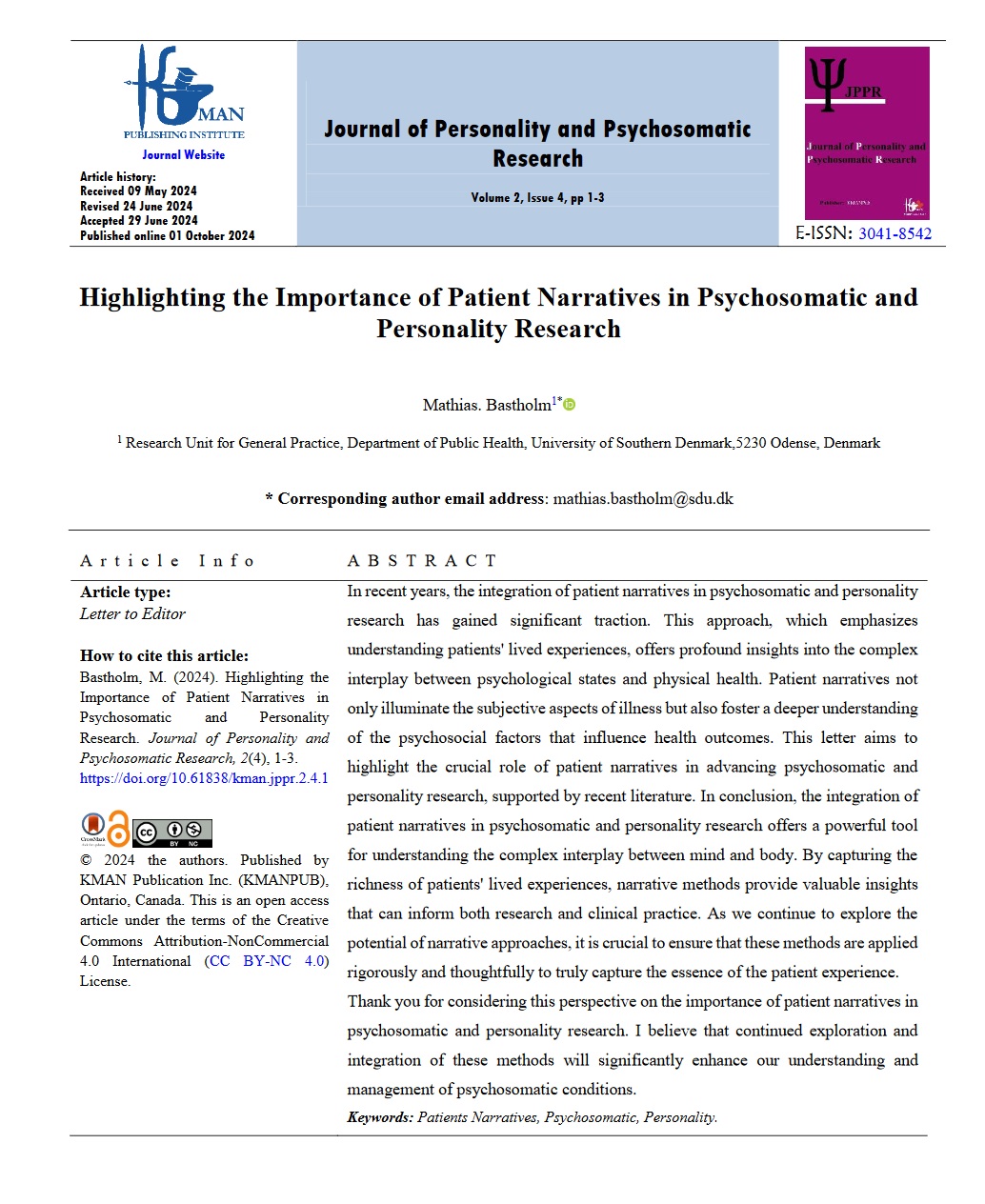Highlighting the Importance of Patient Narratives in Psychosomatic and Personality Research
Keywords:
Patients Narratives, Psychosomatic, PersonalityAbstract
In recent years, the integration of patient narratives in psychosomatic and personality research has gained significant traction. This approach, which emphasizes understanding patients' lived experiences, offers profound insights into the complex interplay between psychological states and physical health. Patient narratives not only illuminate the subjective aspects of illness but also foster a deeper understanding of the psychosocial factors that influence health outcomes. This letter aims to highlight the crucial role of patient narratives in advancing psychosomatic and personality research, supported by recent literature. In conclusion, the integration of patient narratives in psychosomatic and personality research offers a powerful tool for understanding the complex interplay between mind and body. By capturing the richness of patients' lived experiences, narrative methods provide valuable insights that can inform both research and clinical practice. As we continue to explore the potential of narrative approaches, it is crucial to ensure that these methods are applied rigorously and thoughtfully to truly capture the essence of the patient experience.
Thank you for considering this perspective on the importance of patient narratives in psychosomatic and personality research. I believe that continued exploration and integration of these methods will significantly enhance our understanding and management of psychosomatic conditions.
Downloads

Downloads
Additional Files
Published
Issue
Section
License
Copyright (c) 2024 Mathias Bastholm (Corresponding Author)

This work is licensed under a Creative Commons Attribution-NonCommercial 4.0 International License.






